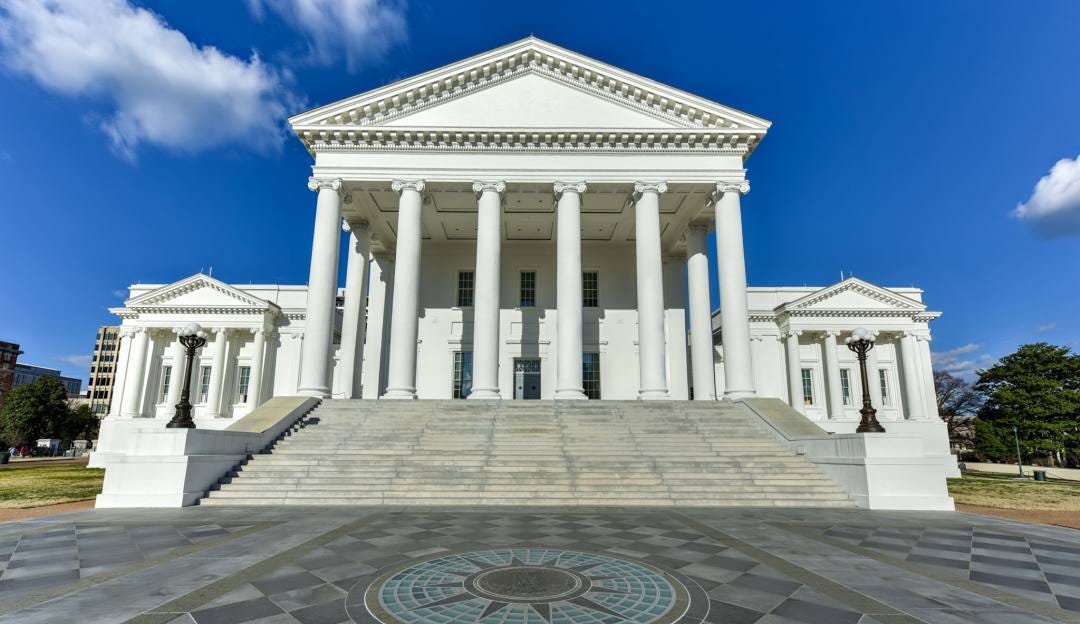Lawmakers tighten school cellphone policy, but teachers question efficacy
Twin bills seeking to limit the use of cellphones and smart devices in schools cleared the General Assembly, although some teachers wish the bills had more consequences.
This is the Virginia Scope daily newsletter covering Virginia politics from top to bottom. Please consider becoming the ultimate political insider by supporting non-partisan, independent news and becoming a paid subscriber to this newsletter today.
Have a tip? You can reply to this email or reach out to me directly at Brandon@virginiascope.com.
Lawmakers tighten school cellphone policy, but teachers question efficacy
By Sarah Hagen, VCU Capital News Service
RICHMOND, Va. -- Twin bills seeking to limit the use of cellphones and smart devices in schools cleared the General Assembly, although some teachers wish the bills had more consequences.
Del. Sam Rasoul, D-Roanoke, introduced House Bill 1961 and Sen. Stella Pekarsky, D-Fairfax introduced Senate Bill 738. Both bills cleared the House with clear bipartisan support and passed the Senate along party lines, after amendments.
The bills direct school boards to develop age-appropriate policies for restricting cellphone use and possession in the classroom, passing periods and lunchtime, to the fullest extent possible. All public K-12 schools will be required to implement the policies, with school administrators responsible for enforcement.
The goals of the bills are to reduce distractions, bullying and harassment in the learning environment.
Students cannot be suspended or expelled for solely violating the policy, but they can be removed from the classroom, according to the bills.
Gov. Glenn Youngkin issued an executive order last year directing the Virginia Department of Education to draft guidance for public schools to adopt cellphone-free education. Pekarsky said her bill will expand on work already done, and will codify the restriction to ensure policies are created with community feedback.
“Many of the school jurisdictions had already implemented policies to do this and the feedback has been extremely positive,” Pekarsky said in a subcommittee meeting.
The bills have explicit protections for students in individualized education programs and with 504 plans, which are plans developed by schools to aid children with significant learning challenges or disabilities. Other exceptions can be made by school boards if deemed necessary, according to the bill.
Teenagers spend almost five hours a day on social media, according to the American Psychology Association. In his book “The Anxious Generation,” psychologist Jonathan Haidt found that since 2010 there has been a 134% and 106% increase in anxiety and depression, respectively.
Lawmakers hope policies to restrict cellphones will help lower these numbers.
Sen. Schuyler VanValkenburg, D-Henrico, is a chief copatron of Pekarsky’s bill. VanValkenburg teaches in Henrico County, which has already successfully implemented a similar policy, according to VanValkenburg.
“Academic performance is up, attention span is up, kids chatting with each other and being social is up,” VanValkenburg said.
Katherine Jones is a mother of three students enrolled at Mary Munford Elementary School. She is the former Richmond Public Schools PTA president.
Phones are “incredibly disruptive” in schools, according to Jones. She has not given her children cellphones yet, but said smart watches are more common in elementary schools and just as distracting.
“I think it puts a lot of burden on the teachers to try to keep kids engaged during learning time because of all the distractions,” Jones said.
Jones campaigned with the “Wait Until 8th” organization that supports delaying smartphones for children until they have finished middle school.
Mary Munford is currently the only school in Richmond that has taken the organization’s pledge. Once a grade at a school hits 10 or more pledges, then it becomes active and contact information is shared among the parents who signed. The school system itself has limited cellphone use in alignment with the executive order.
Instead of removing children from classes for phone use, Jones suggested taking phones away for the day and requiring the parent to come pick it up.
“If you burden a parent with having to come and get their kid's cellphone, they might help enforce the policy with their kids,” Jones said.
David Marshall, associate professor of educational research at Auburn University, supports cellphone restriction in schools, but is opposed to the bill in its current state. The bills nullify themselves because they take away any meaningful consequences to using phones in class, he said.
Cellphone bans work best when they are enforced from bell to bell with clear punishments for not following the policy, according to Marshall. New York City high schools that enforced a phone ban found the same problems persisted when phones were allowed in hallways and during lunchtime, but not when they were restricted for the school day.
“When they banned them for the entire day, students hated the policy for about a month, but after that they were more engaged, and the overall climate of the school improved,” Marshall stated in an email.
Marshall and a colleague at Christopher Newport University surveyed a Virginia school division, and found 78% of teachers said cellphones were a major distraction in classrooms. Teachers supported Youngkin’s executive order, but wanted cellphone policies to be consistently enforced, have full support from the administration and list clear consequences, according to Marshall.
“Without that, the policy simply adds another burden on the plates of already overburdened teachers,” Marshall stated, adding that many teachers want suspension included as a consequence.
The bills now head to the governor, who has until March 24 to change or veto legislation.
A look at competitive House district
This is the Virginia Scope daily newsletter covering Virginia politics from top to bottom. Please consider becoming the ultimate political insider by supporting non-partisan, independent news and becoming a paid subscriber to this newsletter today.





